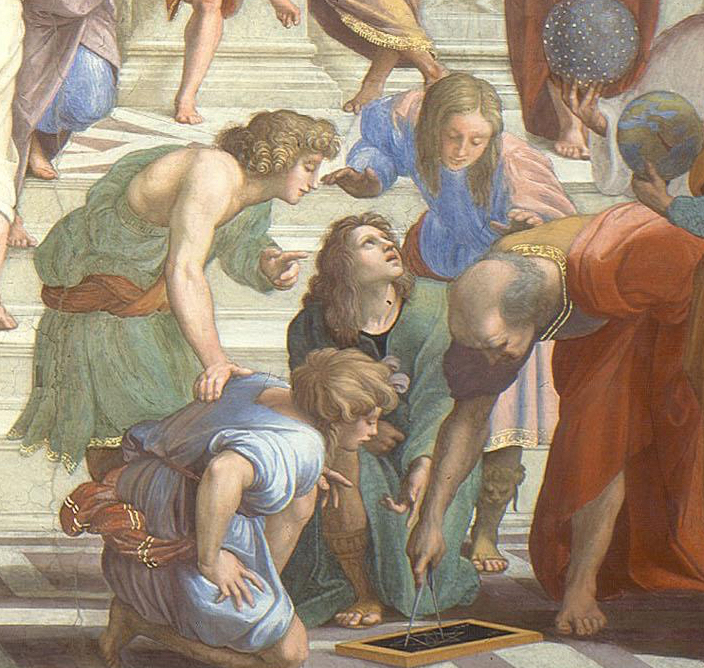Lorenzo Ghiberti, 1378-1455
Lorenzo Ghiberti, Jacob and Esau ("Gates of Paradise" created 1425 -1452)
(Click the image for a lightbox view)
"In perspectival reliefs, such as the panels on The Gates of Paradise, the artist must demonstrate the continuity of the real space of the shelf on which the figures stand in the foreground with the fictive space depicted in lower relief or on the surface of the bronze in the background. To do so, the artist must sharply tilt downward the shelf on which the figures stand. He must also control the degree of the real three-dimensional volume of all the figures in the relief, so that the figures decrease in volume as they recede into depth. This is exceedingly difficult, and yet it is obligatory, especially if one wants to create a single, unified volume of continuously receding space as in the Joseph and the Jacob and Esau panels." -- Andrew Butterflield, in The Gates of Paradise, edited by Gary M. Radke
1) Rebecca's conversation with God before the twins are born, 2) Rebecca on the birthing bed, 3) Esau's selling of his birthright to Jacob for a pot of porridge, 4) Isaac telling Esau he will be blessed if he goes and hunts, 5) Esau's leaving for the hunt, 6) Rebecca's instructing of Jacob in the deceit, and 7) Jacob's receipt of the blessing.
The source of the conflict comes when God speaks to Rebecca:
“Two nations are in your womb, and two peoples from within you will be separated;
one people will be stronger than the other, and the older will serve the younger.” (Genesis 25)
Rebecca prefers Jacob, and dislikes the Hittite wives Esau has brought into the household, who "were a grief of mind unto Isaac and to Rebekah." So Rebecca plots a deception, fooling her blind husband into blesssing Jacob (see #7 above).
(Click the image for a lightbox view)
Foreground: Isaac sends Esau out to hunt (note that the two dogs, one "smooth" and the other "hairy," prefigure the fate of Jacob and Esau by their attitudes)
Background: Esau sells his birthright to his "younger" brother Jacob, symbolic of an act in which a person, with an imperfect set of priorities, sells rights to something valuable in the future, in trade for something immediately gratifying but worth far less in the long run.
"As a work of imagination and sublimity, the Gates were not to be equaled until Raphael's School of Athens" -- Andrew Butterfield
Click HERE for the Wikipedia entry on Jacob and Esau










